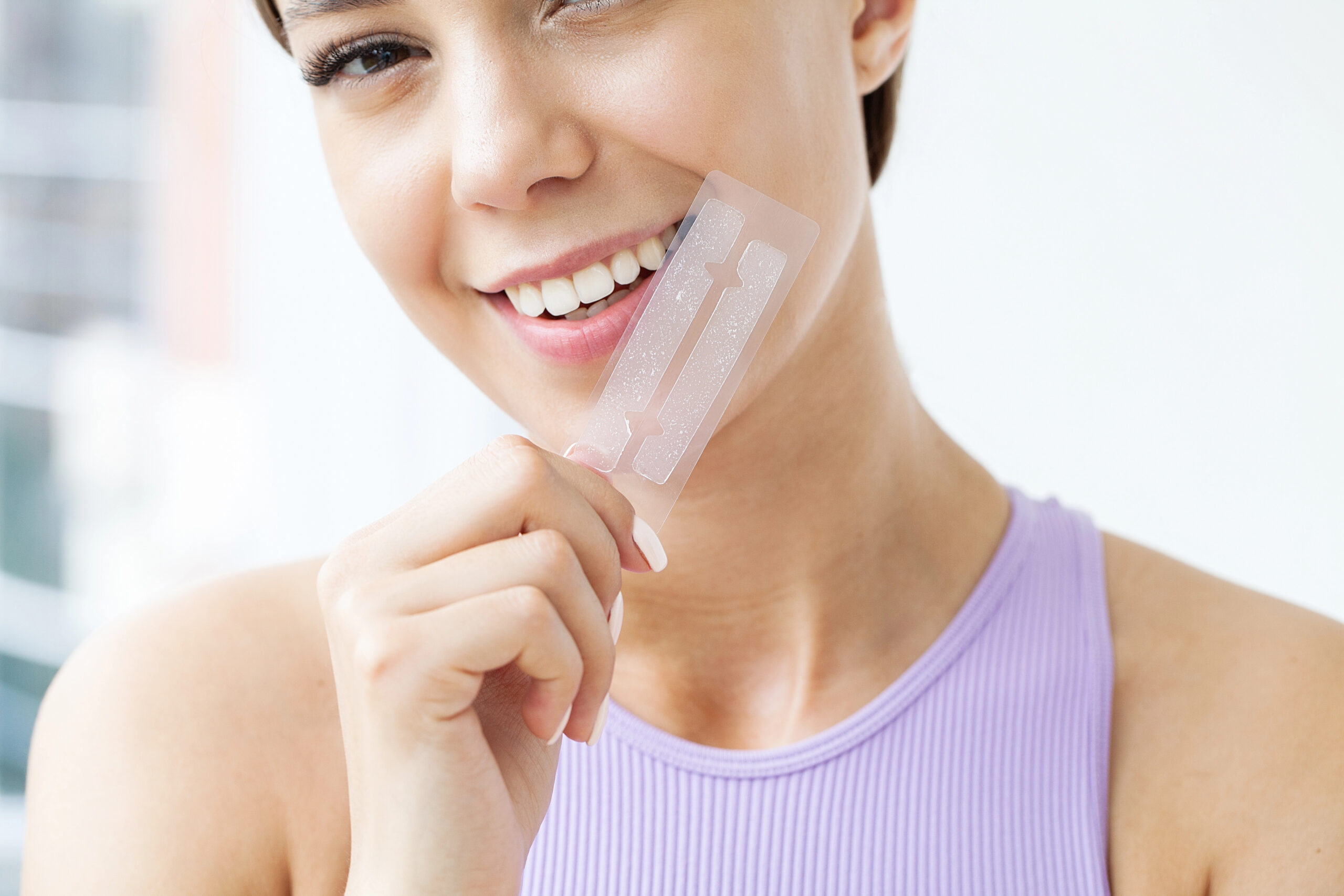Are Teeth Whitening Strips Bad for You?
There’s no denying the appeal of a bright, white smile. In a world of selfies, video calls, and first impressions, many people turn to quick and convenient options like teeth whitening strips to brighten their smile. As far as teeth whitening goes, strips are affordable, easy to use, and widely available at pharmacies and grocery stores.
But with all that convenience, one important question remains… are teeth whitening strips bad for you?
At Brandon Smiles Dentistry, we often get asked about the safety and effectiveness of over-the-counter whitening products, and especially strips. And while the answer isn’t black and white, there are some important things to consider before you peel and stick that next set of strips on your teeth.
How Do Whitening Strips Work?
To understand whether they’re bad for you, it helps to first understand how whitening strips work. Most of these products use a peroxide-based gel (usually hydrogen peroxide or carbamide peroxide) as the active ingredient. These chemicals work by breaking down stains on the surface and just below the enamel layer of your teeth, which results in a visibly whiter smile.
The strips themselves are coated with this gel and designed to cling to the surface of your teeth. Depending on the brand, you’re usually instructed to wear them for anywhere from 5 to 60 minutes a day over the course of several days or weeks.
When used as directed, whitening strips can be effective for removing mild surface stains caused by coffee, tea, red wine, or tobacco. But that doesn’t mean they’re without risks.
Potential Risks of Whitening Strips
One of the most common side effects reported by users is tooth sensitivity. This happens because the peroxide in the strips can temporarily make the enamel more porous, allowing sensations (like hot or cold) to reach the inner part of the tooth more easily. For some people, this sensitivity is minor and goes away after the whitening is stopped. For others, it can become uncomfortable enough to interfere with daily life.
Gum irritation is another issue. If the whitening strips touch your gums, the peroxide can cause a burning or stinging sensation. In some cases, it can even lead to inflammation or white patches on the soft tissue. This is especially true for people who leave the strips on for too long or use them more frequently than recommended.
There’s also concern about enamel erosion when whitening strips are overused. Enamel is the hard, outer layer of your teeth that protects them from decay. Using whitening products too often or for too long can wear down this protective barrier, making your teeth more vulnerable to cavities, staining, and sensitivity in the future.
Are Whitening Strips Safe for Everyone?
Whitening strips are generally considered safe for short-term use when directions are followed properly. However, they’re not for everyone. People with dental restorations like crowns, veneers, or fillings may notice that those areas don’t whiten like natural teeth, resulting in uneven color. People with gum disease, worn enamel, or untreated cavities may also experience more severe side effects if they use whitening products without professional supervision.
It’s also worth noting that most whitening strips are not recommended for children, pregnant individuals, or people with braces, as they may not be safe or effective in those situations.
What’s Inside Whitening Strips?
The active ingredients in whitening strips (hydrogen peroxide or carbamide peroxide) are what actually do the whitening. These are the same types of ingredients used in professional whitening treatments, but the concentration in store-bought strips is usually much lower. This means they’re safer for general use, but they also tend to take longer to produce results.
However, some brands may include added chemicals or preservatives that can cause allergic reactions or contribute to irritation. Always check the label if you have known sensitivities or allergies. And if you’re ever unsure, your dentist can help you choose a product that’s right for you.
Better Alternatives for a Brighter Smile
If you’re thinking about whitening your teeth, it’s a good idea to talk to your dentist first. At Brandon Smiles Dentistry, we offer professional teeth whitening treatments that are stronger, safer, and more predictable than what you’ll find on store shelves.
In-office treatments use higher concentrations of whitening agents and are carefully applied under controlled conditions to minimize the risk of sensitivity or gum irritation. We also offer take-home whitening kits that are custom-fitted to your teeth, which helps ensure even whitening and better results than generic strips.
Professional treatments don’t just deliver better results but they also come with personalized guidance. Your dentist can evaluate the condition of your teeth, spot any issues that might make whitening risky, and help you choose the best treatment plan for your smile.
So… Are Whitening Strips Bad for You?
The answer depends on how they’re used and who’s using them. For many people, teeth whitening strips are a safe and effective way to brighten their smile when used correctly and in moderation. But they’re not a one-size-fits-all solution, and overuse (or improper use) can lead to problems like sensitivity, gum irritation, and enamel damage.
If you’re thinking about using whitening strips, your best first step is to check in with your dentist. We can help you weigh the pros and cons, identify any risk factors, and recommend a treatment that will leave you with a healthier, brighter smile.
Teeth Whitening at Brandon Smiles Dentistry
Whitening strips can offer a quick and easy solution for mild staining, but they’re not without risks. At Brandon Smiles Dentistry, we’re here to help you achieve the radiant smile you’re after in a way that protects your oral health.
If you’re considering whitening your teeth and want to do it safely and effectively, book an appointment with us today. We’ll help you explore your options and guide you toward a brighter, healthier smile without any guesswork.

